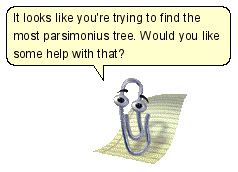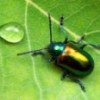As if we systematists didn't have enough to worry about with the worldwide extinction crisis and the dwindling presence of taxonomists in academia, now we've got the vultures lawyers laying claim to the primary tools for our science.
Microsoft is trying to patent phylogenetics. No, seriously. Read the patent application.

I doubt that this particular application will survive. After all, Microsoft will have a hard time demonstrating the originality of their "invention" considering the thousands of published phylogenetic studies that predate their claim.
All the same, systematists should worry. Other branches of biology and university life have already fallen under the shadow of patent law, and there is absolutely no reason why the trend won't seep into our field in the near future. If not Microsoft's patent, then someone else's.
More info at Science.

Wow, that's, uh, absurd. But, you know, sure, Microsoft. Get out there and develop a PAUP rip-off with a GUI for OS X. Please?
From the patent:
Excuse me?
Anyways. They seem to be trying to patent something like the Wagner tree algorithm (Farris, J. S. 1970. Methods for computing Wagner trees. Syst. Zool . 19: 83-92.). That's it. Not even swapping. You will be always be able to bypass paying royalties by starting a tree search on a random or NJ tree. ;)
Besides, you should look at the bright side. It's only for molecular data, so this could be a boost for morphology.
Oh, and this is not the first time someone tries to patent cladistics methods.
Hang on, so not only are they trying to patent a phylogenetic method, but they're patenting a bad one (by today's standards). Is that close?